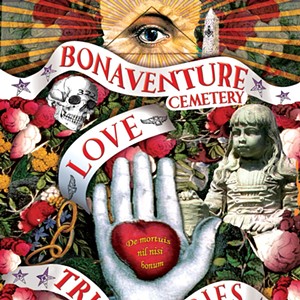THE Savannah College of Art and Design (SCAD) has two divergent reputations in Savannah. Since its inception it has been a leader in the preservation of historic buildings in our city while providing education and cultural activities for its students and citizens alike.
At the same time, its non-profit status has enabled it to avoid paying property taxes to our county and city governments. Its admirable growth in student registrations over time has created more demand for governmental services while at the same time it has been taking properties off the tax rolls to house and educate these students.
The result is that the owners of taxed properties must pay for these expanded services, thereby subsidizing the College’s operations.
According to the property records of Chatham County, SCAD purchased at least 11 properties in downtown Savannah in 2018 worth over $46 million. If taxed at prevailing millage rates, these properties would have generated over $600,000 in revenue for local governments.
Since SCAD does not have to pay property taxes, the rest of us who do make up the difference.
In our economy, we grant generous tax advantages to nonprofit organizations which supply socially needed goods and services which they could not afford to provide if they were taxed as for profit companies.
Receipt of IRS nonprofit status means SCAD is exempt from paying taxes on real estate property and any profit earn which is invested to expand/serve their mission. They also may be exempt from sales taxes, may seek funding from foundations, and their donors may receive tax deductions on their income taxes.
The societal benefit is that we have a thriving network of schools, churches and charities on whom many of our citizens depend upon for their wellbeing.
When we developed these policies to support the missions of IRS approved nonprofit organizations, we never envisioned the possibility that some of them would become highly profitable while maintaining their tax advantages.
Today, the largest United States universities in the Ivy League earn hundreds of millions of profit each year. However, in recognition of their dependence on local governmental services, many of them, including Harvard, Yale and Princeton Universities make voluntary contributions to their local governments, some over $10 million annually.
SCAD is a private organization but its finances may be viewed from two sources.
First, every nonprofit maintaining its status must submit a report to the IRS each year. Called the 990, this report then becomes public through several on-line sources.
Also, SCAD’s financial reports must be audited in order to ensure their reliability. SCAD uses the highly recognized firm, Grant Thorton, as their external auditor and these reports are also available on-line.
SCAD’s fiscal year ends June 30. Its 990 for last year is not yet available. However, its audited statements for 2018 and 2019 can be reviewed.
Many Savannah residents were surprised to learn that SCAD earned $139 million profit in 2018. Last year, however, its profit grew to over $150 million.
Since SCAD reports about 14,000 students this means that, after all expenses, the College is earned more than $10,000 per student last year.
Some other data: SCAD’s total revenue for 2019 was $486 million. The value of its total assets (with property valued at cost plus improvement) is $1.118 Billion.
Its net assets are $846 million (assets minus liabilities) and it has $629 million in investments.
This last figure is important: it means that the College has this amount of funds which are not invested in its operations.
While we may disagree on what is actually fair, most Americans believe that taxes should be assessed and paid fairly and that no one should take advantage of policies aimed at serving the public purpose for their own private benefit.
One thing, however, is clear. SCAD does not need the benefits of its nonprofit status to maintain their operations. These benefits may not persist if the College loses the public trust.






















